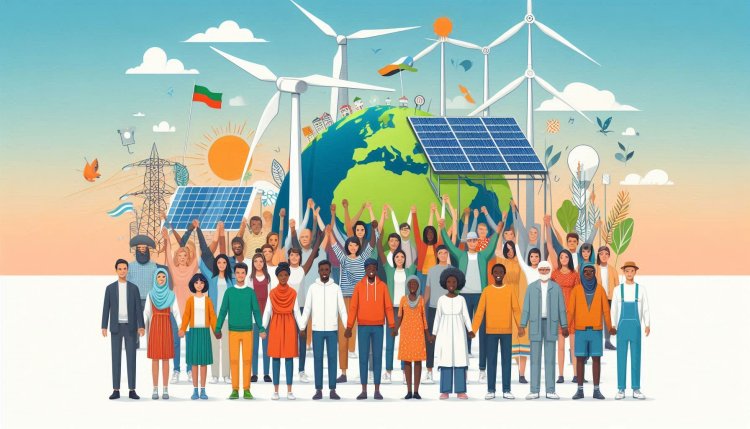The Impact of Renewable Energy on Energy Poverty
Learn how the adoption of renewable energy is combating energy poverty, improving access to clean and affordable power for communities worldwide.

The Impact of Renewable Energy on Energy Poverty
Energy poverty is a pressing issue affecting millions of people around the world. It is characterized by a lack of access to affordable and reliable energy sources, which can have severe consequences on people's health, education, and overall quality of life. Renewable energy sources, such as solar, wind, and hydropower, have the potential to address energy poverty by providing clean, sustainable, and affordable energy solutions. In this article, we will explore the impact of renewable energy on energy poverty.
1. Access to Clean and Affordable Energy
One of the key benefits of renewable energy is its ability to provide clean and affordable energy to communities that may not have access to traditional energy sources. In many developing countries, rural communities rely on expensive and polluting sources of energy, such as kerosene lamps and diesel generators. By investing in renewable energy projects, these communities can access clean and affordable energy that is not only better for the environment but also improves their quality of life.
2. Reduction of Energy Costs
Renewable energy sources, such as solar and wind power, have seen significant cost reductions in recent years, making them more competitive with traditional fossil fuels. By harnessing these renewable sources, communities can reduce their energy costs in the long run, ultimately lifting them out of energy poverty. This is particularly important for low-income households that spend a significant portion of their income on energy expenses.
3. Job Creation and Economic Development
The renewable energy sector has the potential to create jobs and stimulate economic development in communities that are struggling with energy poverty. Investments in renewable energy projects can create a wide range of job opportunities, from manufacturing and installation to maintenance and operation. This not only provides employment opportunities for local residents but also boosts the local economy and promotes sustainable development.
4. Energy Security and Reliability
Renewable energy sources are inherently more reliable and secure compared to traditional fossil fuels, which are subject to price fluctuations and supply disruptions. By diversifying their energy sources and investing in renewable energy technologies, communities can improve their energy security and reliability, ensuring a stable and uninterrupted energy supply. This is particularly important for remote and underserved areas that are vulnerable to energy shortages.
5. Environmental Benefits
Renewable energy sources produce clean energy without emitting harmful greenhouse gases or pollutants, unlike traditional fossil fuels. By transitioning to renewable energy, communities can reduce their carbon footprint and mitigate the impacts of climate change, which disproportionately affect vulnerable populations. This not only improves the environmental sustainability of energy production but also enhances the overall well-being of communities by reducing air pollution and promoting a healthier environment.
6. Policy Support and Advocacy
Governments and policymakers play a crucial role in promoting the adoption of renewable energy and addressing energy poverty. By implementing supportive policies, such as renewable energy incentives, subsidies, and regulations, governments can encourage investment in renewable energy projects and facilitate the transition to a more sustainable energy system. Advocacy efforts from civil society organizations and community groups can also raise awareness about the benefits of renewable energy and advocate for policies that prioritize energy access for all.
Conclusion
Renewable energy has the potential to significantly impact energy poverty by providing clean, affordable, and sustainable energy solutions to communities in need. By investing in renewable energy projects, reducing energy costs, creating jobs, improving energy security, and promoting environmental sustainability, communities can alleviate the burden of energy poverty and improve the quality of life for millions of people around the world. It is essential for governments, policymakers, and stakeholders to prioritize renewable energy as a key solution to address energy poverty and ensure energy access for all.
What's Your Reaction?

















